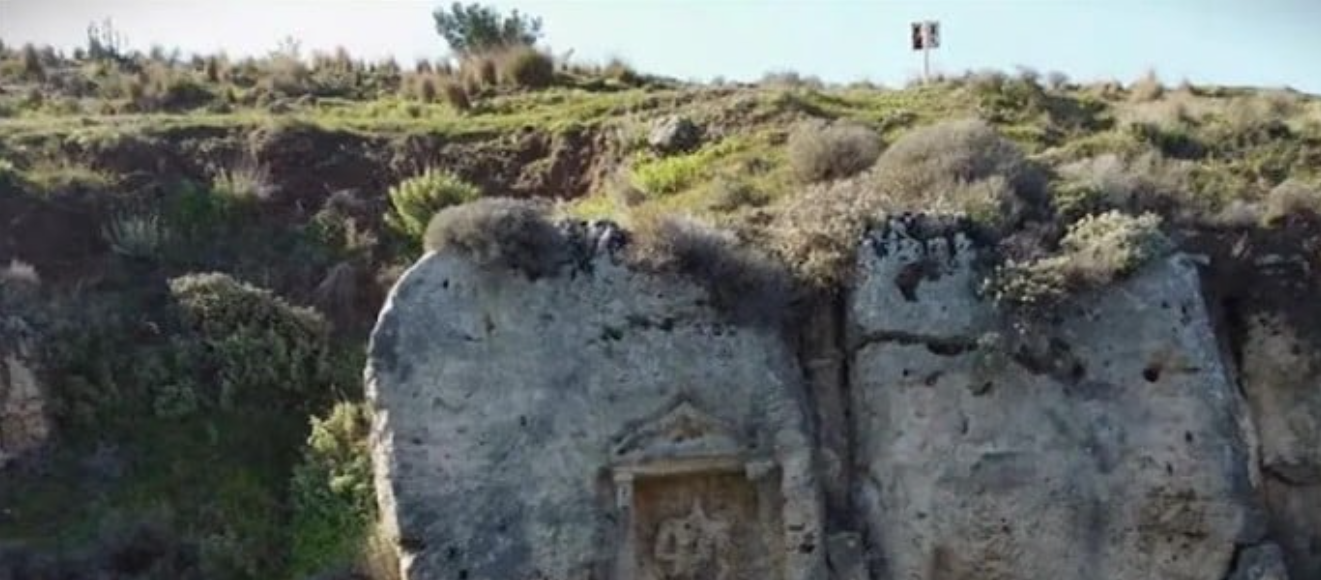Rigas Feraios or Rhegas Pherraeos is the prime representative of the Greek Enlightenment. His actions, characterized by his flaming patriotism and thirst for freedom, resulted in the awakening of the Greek Nation and led to the events of the Greek War of Independence in 1821 and ultimately the freedom of the Greeks.
Teacher of the Greek Nation (1757 – 1798)
His real name was Antonios Kyriazis. He would frequently sign with the name Rhegas Velestinlis; the name Pherraeos was never used by him. Rhegas studied in the School of Zagora of Pelos, where he first came into contact with the Ancient Greek writers. He then began working as a teacher. After being involved in the murder of a Turkish officer, he retreated to Mt. Olympus where he joined his uncle’s militia of harmatoles. Shortly after staying in Mt. Athos, Rhegas settled in Constantinople where he befriended the Hypsilantis family.
His patriotic activities started when he was appointed to a governing position of Wallachia its hegemon, Prince Nicholas Mavrogenous. Rhegas’ goal was not just the liberation of Greece but the creation of the Balkan Federation, where all the peoples of the Balkan would live free from Turkish rule as brothers. Greece would hold its old dominating position in education.
In the years that followed, Rhegas Pherraeos dedicated his life to educating and awakening the subjugated Greeks. His efforts centered on restoring their morale in order to prepare them spiritually for the war against the oppressor. Further boosting his determination were the French Revolution and the successive victories of Napoleon. He became the first and most powerful preacher of Freedom and its values. He spoke publicly against all forms of oppression or slavery. For Rhegas, all slaves, regardless of their race or religion, are brothers and must be free.
Rhegas did not only preach his words, he wrote and gave out patriotic pamphlets with revolutionary notions. He envisioned the liberation not just of Greece, but all of the Balkans and the creation of a democratic federation where all the peoples of the Balkans could live together in harmony. This dream became the Map of Great Greece (Χάρτα τοῦ Ῥήγα), which included all the Balkans and Asia Minor. The Map contained the Rights of Man as well as a Constitution, which he himself had written. Rhegas also devised the military operations that were necessary to start the revolution and thus translated military works from French to Greek and organized secret meetings with official French assemblies including Napoleon himself. Having foreseen the outcome of the revolution he was devising, he wrote a democratic statute for the full function of the Balkan Federation. Finally, he wrote the Thourios, the quintessence of a patriotic hymn to rouse the Greeks.
Vienna was the city of his operations, mostly because it was the center of a Greek community of merchants and literary figures, influenced by the Enlightenment of the West. It was there that he founded a press and printed his books, translations, hymns and his map, alongside his colleagues. These were disseminated in all of the Balkans in secrecy. However, when he was about to depart to Trieste, boxes with his material were confiscated by the Austrian Police Force. Rhegas and his colleagues were apprehended and charged for preparing a revolution against their ally, the Ottoman Empire. Alongside seven of his companions, Rhegas was transported to Belgrade and sentenced to death.
Rhegas’ extraordinary efforts were mainly targeted in awakening the Greeks because he considered them the leading nation of the Balkans and thus the rightful wielders of the reins of education, learning and governance. Today, he is hailed as a revolutionary, a political thinker, a hero and most importantly a visionary who gave his life for the ultimate cause of Freedom. His last prophetic words were “I have sown a rich seed; the hour is coming when my country will reap its glorious fruits”.
Bibliography
“Rigas Feraios”. Helios New Encyclopaedic Dictionary. Passas, I. Athens, 1946. Print.
ΡΗΓΑΣ ΦΕΡΡΑΙΟΣ ΒΕΛΕΣΤΙΝΛΗΣ: Ο ΒΙΟΣ ΚΑΙ ΤΟ ΕΡΓΟ ΤΟΥ-Ο ΦΡΙΚΤΟΣ ΤΟΥ ΘΑΝΑΤΟΣ- Ο ΘΟΥΡΙΟΣ. Αντέχουμε. Antexoume.wordpress.com. Web. June 12, 2014.









